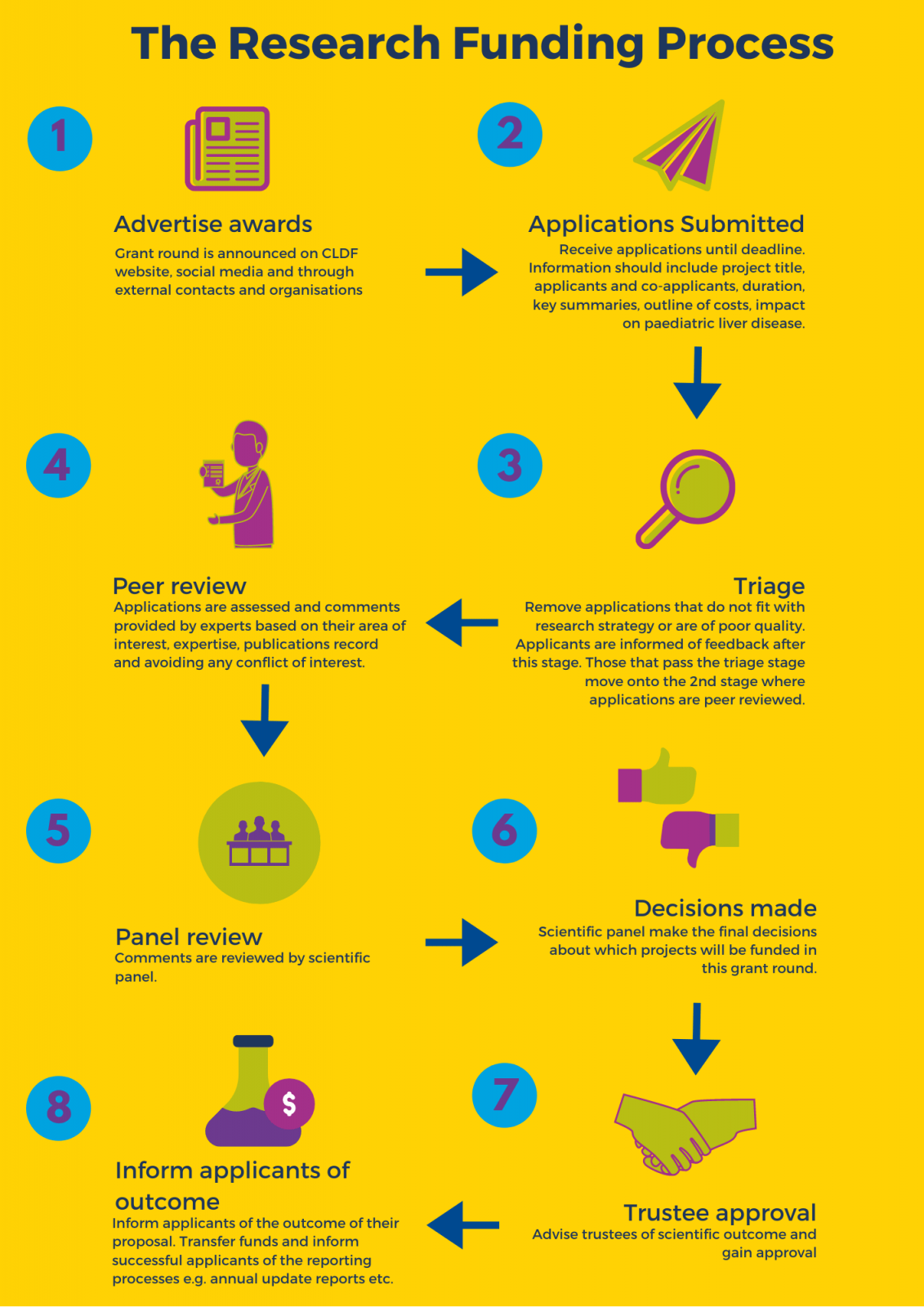Children's Liver Disease Research | Children's Liver Disease Foundation (original) (raw)
CLDF’s Scientific Committee ensures the charity uses its funds to support the highest quality research to benefit the lives of children and young people affected by childhood liver disease now and in the future. The committee’s role is to assess applications for CLDF medical, social science and/or nursing award(s) and make recommendations for funding to the Board of Trustees. Here’s a link to the committee membership.
When we receive applications for funding the first thing we do is triage the applications, making sure they fit with the research strategy. Those that do move to the next stage….
Peer review takes place. This is where scientific experts look at an application and consider the scientific merit of the application and the likelihood that it will have an impact on the understanding, care or treatment of liver disease in children and young people. Each application is reviewed in detail by 2 or 3 reviewers. We make sure that the reviews are not biased and all reviewers have to sign up to our conflicts of interest policy and make us aware of any conflicts they may have .
A member of the Scientific committee will be assigned the role of ‘lead discussant,’ for each application this means that they are responsible for leading the discussion about the application and the peer reviews at the panel meeting, where the whole scientific committee considers the applications.
In preparation for the panel meeting all committee members receive the applications and peer reviews, for all applications that they do not have a conflict of interest for. A conflict of interest might be that the application comes from a colleague, or someone at the same institution. Detailed discussions and appraisal take place at the meeting. Individual committee members then rank the applications in order of their importance. Once collated the committee reviews the collective rankings. Further discussion can take place where there are not clear results. The final choice of successful applications is then made……
The trustees of the charity are then told about the scientific committees recommendations and funding decisions are made.
The applicants for the research round are informed of the outcome and receive feedback on their applications, for unsuccessful projects.
Successful projects are required to keep CLDF up to date on the progress of their research. At least once per year the scientific committee meets to review the formal progress reports from current grant holders and advise trustees whether to grant subsequent years’ funding and the general progress of the research portfolio.
